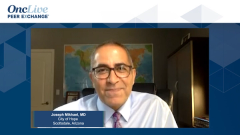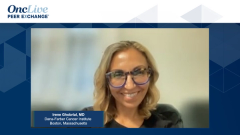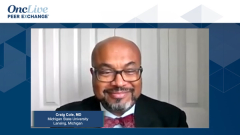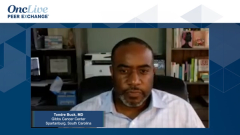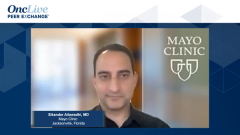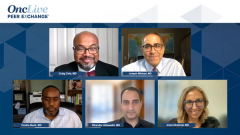
Multiple Myeloma: Disparities in Access to Transplantation and Novel Therapy
Closing out their review of the barriers racial and ethnic minority groups encounter in receiving care, expert panelists address access to transplantation or novel therapy.
Episodes in this series

Transcript:
Joseph Mikhael, MD: On that notion Craig, let me turn to you for a moment because I know you've done some work in this area in terms of access. I rhymed off those 4-Ts. Triplets, transplants, trials, and CAR-T. Maybe you can just comment on a little bit deeper level of how big this problem is when it comes to access to transplantation, access to clinical trials. Is this a small disparity? Is this a big disparity? What kind of frame of reference are we using to describe this?
Craig Cole, MD: I think that I'll paint that frame, as you mentioned. With the first fact is that when you look, all things being equal, when you look at the VA where again all things people of every color and ethnicity are treated the same. When you look at clinical trials. You look at the RVD-1000 study. You look at just subanalysis of the Griffin trial. With a 4-drug induction therapy. You see that Black people and African Americans fair just as well if not- in some studies better. That have better outcomes. All things being equal people do that disparity in survival doesn't exist. Then in that and especially with transplant. I mean, there have been several studies that looked at outcomes of transplant between ethnicities and there's no difference in overall survival, no different in transplant mortalities. However, 1 in 7 transplants aren't done because of racial disparity, and half of transplants aren't done because of financial disparities. When you look at national databases, you see that Black, Asian, and Hispanic ethnicity, older age, low neighborhood income and education, and being living in a metro area decrease your likelihood of getting a stem-cell transplant again that we know can improve progression-free survival in multiple myeloma. That lack of healthcare insurance, with Medicaid, lower stem-cell transplant utilization but I would say that probably the biggest thing, the biggest thing that I worry about is physician bias. That some of the Black and African Americans having more comorbidities that physicians will make the decision that say that well I don't think that this person wants a transplant or is too sick, or too poor for a transplant. Again, when we know that when you put the races up against each other for survival transplant it's all the same. There's a study that was done where they looked up Black patients in front of transplant doctors and they were just as likely to agree to transplant as anybody else. At the provider level that the unconscious bias which we all have that training which is critical to have is part of the reason why we don't refer patients for transplant. And we know that the outcomes would be the same if we could.
Joseph Mikhael, MD: Thanks Craig, wow so insightful. Looking at the disparity both in access but also in even if people get there, right? We can be the barrier as physicians and as providers. Before we move into our third section to start the solutions, Sikander I want to come to you as you've written about this and I know you're passionate about it. We've talked more about transplants and to some degree clinical trials but how would even just the triplets as I call it or the novel therapies, right? You've written some sad work about access to even just getting what we don't even call novel therapies anymore, you know? The drugs we use so routinely. Maybe you can a bit about not so much the solution to it yet but just the problem. Is this a problem of getting access you say OK well maybe we could do without transplant, maybe we could do without clinical trials but how about just the basic drugs we use in myeloma?
Sikander Ailawadhi, MD: Joe, that is so important. We published a few years ago that at least in that analysis which was out of a large Medicare claims data the average time between diagnosis, this is not the delay in diagnosis, the diagnosis has been made, the average time between the first diagnosis of myeloma and the first use of bortezomib, one of the cornerstone, basic drugs in a Hispanic patients is 102 days. Three and a half months between the diagnosis of myeloma documented for which a claim has been made to insurance to the first treatment using bortezomib in Hispanics 102 days. The utilization of IMiDs or lenalidomide and at that time we had even looked at thalidomide significantly lowered the lowest in African Americans. Amongst all racial-ethnic subgroups. One of the things we keep getting bogged down by is when a lot of these studies come out and it shows that over time there has been an improvement in everybody. Transplant, triplet-twos, novel drug use. Then when you start teasing out the data yes, sure over time more African Americans are getting transplanted. More African Americans are getting into trials. More African Americans are getting triplets. More African Americans are getting bortezomib and lenalidomides and all that stuff. But the increase is differential and disparate that the trajectory that the African Americans and Hispanics are following is way slower which means that despite talking about all of this we are not penetrating into the highest need strata of our society. African Americans yes are getting more treated with triplets or novel drugs etc. over time, but that increase is minuscule as compared to what we would expect for patients and what we see in whites. That to me is just a stark reality standing in our face.
Joseph Mikhael, MD: Wow, beautifully said.
Transcript edited for clarity.


